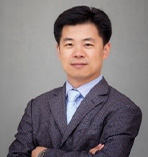
Chinese Academy of Sciences, China
Zhong-Shuai Wu received his Ph.D. from the Institute for Metal Research, Chinese Academy of Sciences (CAS), in 2011 and worked as a postdoctoral fellow at the Max Planck Institute for Polymer Research in Mainz, Germany, from 2011 to 2015. Subsequently, he became a full professor and group leader of 2D materials chemistry & energy applications at Dalian Institute of Chemical Physics (DICP), CAS, and was promoted in 2018 as a DICP Chair Professor. Currently, his research interests include the chemistry of graphene and 2D materials, surface- and nanoelectrochemistry, microscale electrochemical energy storage devices, supercapacitors, Li+/Na+/K+/Zn2+ ion batteries, Li-air/Li-S/solid-state batteries, energy chemistry and catalysis. He has published more than 280 papers, with a total citation of >35000 times. He is the Recipient of National Science Fund for Distinguished Young Scholars, Fellow of the Royal Society of Chemistry, The 2018/2019/2020/2021/2022/2023 Highly Cited Researchers (Clarivate Analytics), the National Natural Science Award (2nd class), etc. He is serving as the Associate Editor of Applied Surface Science, Section Editor of J. Energy Chem., Editorial Group Member for Natl Sci. Rev., Academic Editor of Interdisciplinary Materials, Editorial Board of Energy Storage Mater., Science Bulletin, Nanomaterials, Mater. Res. Express, Physics, Chin. Chem. Lett., eScience, and Engineering. For more information, see http://www.zswu.dicp.ac.cn
Micro-supercapacitors (MSCs) and micro-batteries (MBs) with in-plane geometry are a new class of micro-electrochemical energy storage devices for various microelectronics circuits. Two dimensional (2D) materials with the advanced merits of ultrathin flat structure, high specific surface area, and excellent mechanical characteristics, are one of the perfect candidates for planar MSCs and MBs. In this talk, our recent progress on 2D materials-based planar MSCs and MBs will be reported. This involves the strategies for preparing high capacitance 2D materials such as electrochemically exfoliated doped graphene, MXene, metal oxides and mesoporous polymers via techniques like electrochemical exfoliation, liquid exfoliation, graphene template, and supramolecular self-assembly methods. The inherent advantages of these materials are leveraged and translated into high-performance MSCs and MBs for integrated micro-systems through state-of-the art techniques like inkjet-printing, screen-printing, 3D printing and photolithography. The all-solid-state planar integrated MSCs can achieve ultrahigh output current/voltage through series or parallel connection. Taking a step towards achieving practical internet of things, integrated microscale energy storage systems with different application scenarios are exploited, like high-performance planar integrated system of MSCs and gas sensors, wearable pressure sensor system, and all-flexible self-powered integrated systems. Such self-powered integrated microsystem combines energy generation/harvesting, storage, and consumption in one system, catering to a wide variety of demands.